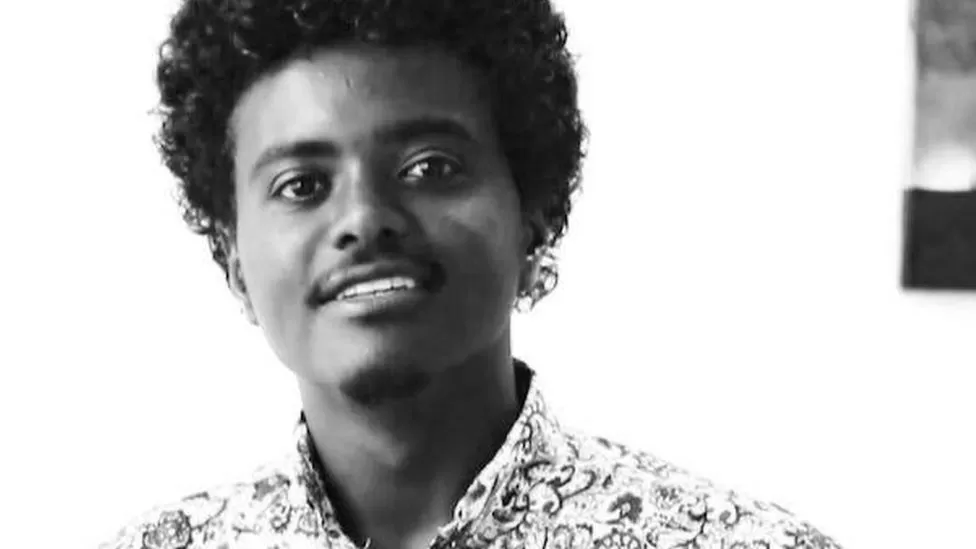Fighting is raging in Sudan’s West Darfur region, despite the ceasefire, with Arab militias targeting warehouses, markets and homes.
A senior policeman has been killed and a Sudanese aid worker has told the BBC he has been hiding under his bed because of the violence.
“I cannot even go to the bathroom,” Abdallalateif Eltayeb said over the phone from the city of El Geneina.
The conflict has inflamed already fraught ethnic tensions, he says.
Darfur has been in turmoil for years with violence between its various African and Arab communities.
When non-Arabs took up arms against the government in 2003, complaining about discrimination, the government retaliated by mobilising mostly Arab militias who went on to be accused of widespread atrocities. To this day, many Darfuri African groups live in camps for their own safety.
Now Arab militias – linked to the Rapid Support Forces (RSF), the paramilitary group that is fighting the army – appear to be taking advantage of the security vacuum.
“The clashes started four days ago,” says Mr Eltayeb, who is a 26-year-old humanitarian consultant originally from Sudan’s capital, Khartoum.
“Militias are attacking markets, warehouses, offices, organisations, hospitals and now they’re targeting homes. I’m just waiting for my turn.
“There’s a lot of shooting in the front yard, close to where the bathroom is. Every time I want to go to the bathroom I have to wait five to 10 minutes to see if there’s any shooting and then I can go.”
Heavy fighting has been reported in West Darfur all week. On Wednesday, the Deputy Police Director of West Darfur State, Brigadier General Abdel-Baqi Al-Hassan Mohamed, was reportedly shot and killed.
Media caption,
Watch: An RSF soldier waves his gun around in front of police HQ in West Darfur
This shooting took place a day after civilians stormed the West Darfur state police station, seizing weapons.
“Arab militias have been attacking internally displaced people,” explains Mr Eltayeb. “They’ve burned all the IDP camps.
“The IDPs then went to the police HQ and now they’re armed. They tried to defend themselves on Tuesday but they couldn’t. There are a lot of dead people.”
When Mr Eltayeb briefly tried to leave his house to charge his phone because he had not had any electricity in five days, he was faced with the horrific reality of the violence.
“I saw pick-up trucks full of dead people and armed Arab militias were looking at us with angry eyes.
“After that I just went back home and I’ve been using my power bank but the battery is almost drained. I might not have any battery left by the end of the day.”
He is desperate to get out.
“My colleagues and I have talked about trying to escape but there’s no chance, zero chance.”
The view from Abdallalateif Eltayeb’s bedroom window in El Geneina
War Child, the charity he consults for, says it is working with the UN to relocate their Sudanese staff that are not from the region, but are facing huge challenges.
“We’re doing everything we can to support our staff, but right now in El Geneina the violence has escalated to the point that even for the UN to try and do any kind of relocation, it’s going to be incredibly challenging,” Dara Mcleod, executive director of War Child Canada, told the BBC.
UN special envoy to Sudan Volker Perthes agreed that groups in Darfur were “exploiting the situation and pursuing their own conflicts”.
“This is made worse by the fact that the actors that are supposed to provide security for the people in the country, in Darfur and other regions, are actively involved in the fighting themselves,” he told the BBC.
When the war began in Darfur two decades ago, the Arab militias armed by former President Omar al-Bashir’s regime were infamously known as the Janjaweed.
They went on the rampage killing hundreds of thousands as villages were burnt and pillaged. It has been described as the first genocide of the 21st Century.
The RSF is made up of former members of the Janjaweed and there are fears that they are stirring up old tensions in the region for their own gain.
The news that Bashir associates involved in Janjaweed atrocities have escaped from prison in Khartoum could potentially complicate the already volatile situation there.
Among them is Ahmed Haroun, a former interior minister wanted by the International Criminal Court (ICC) for war crimes committed in Darfur.
West Darfur is not the only area that has been affected. Journalist and rights monitor Ahmed Gouja said that militiamen have been terrorising civilians in the city of Nyala in South Darfur.
“They are looting, stealing, destroying people’s property and killing,” he told the BBC’s Newsday programme.
Mr Eltayeb just wants the fighting to end so he can leave.
“I want to see my family in Khartoum. If not I’ll go to Port Sudan: I have relatives there. Or the Chadian border is very close to us so I’d go to Chad and wait there until the situation is calmer then go to Khartoum to see my family.”
But given the ceasefire has not held in Darfur, it is not clear when he will be able to see his loved ones.
